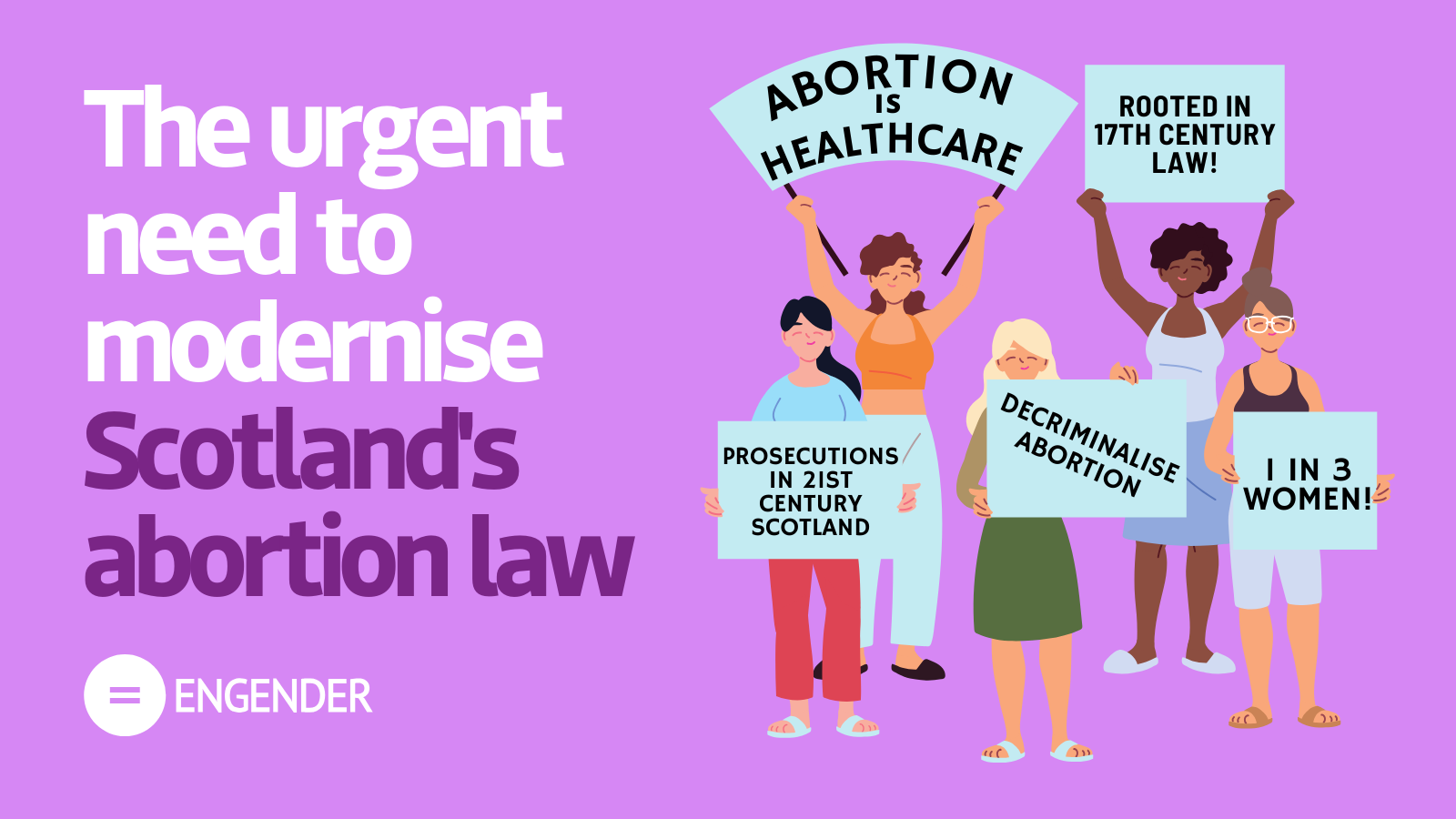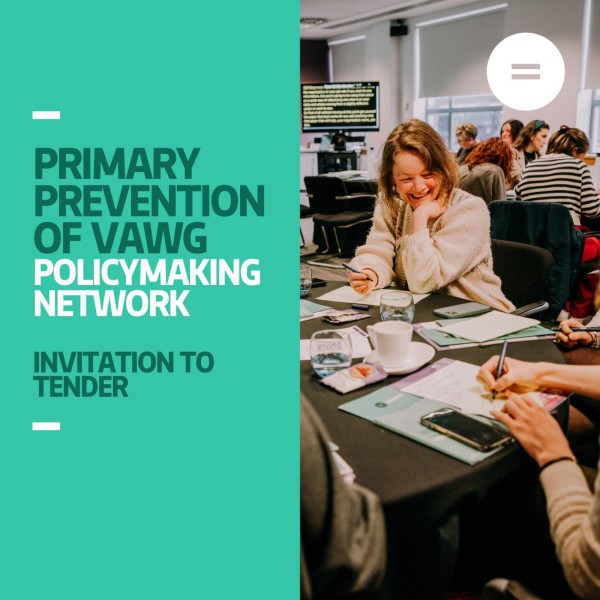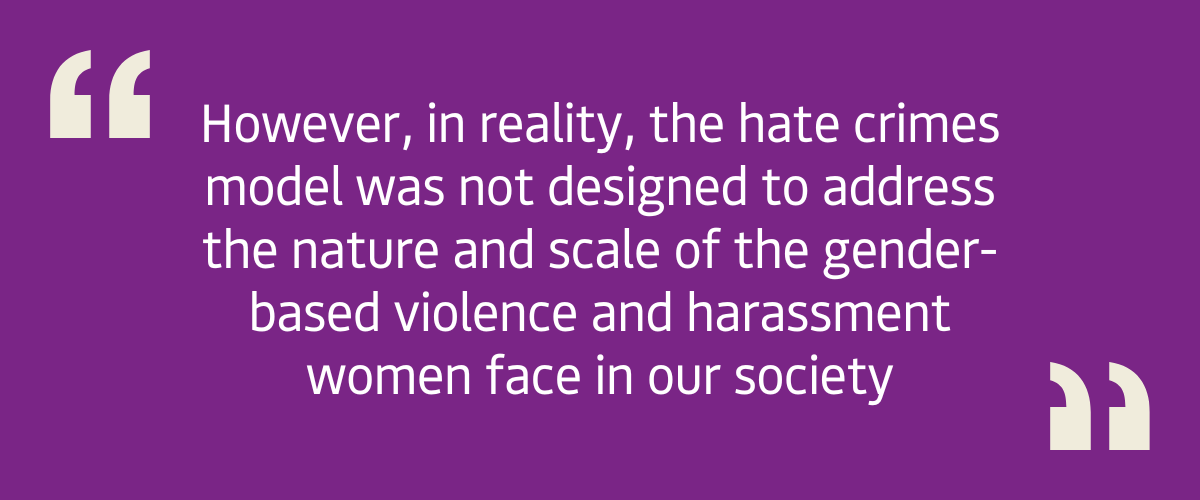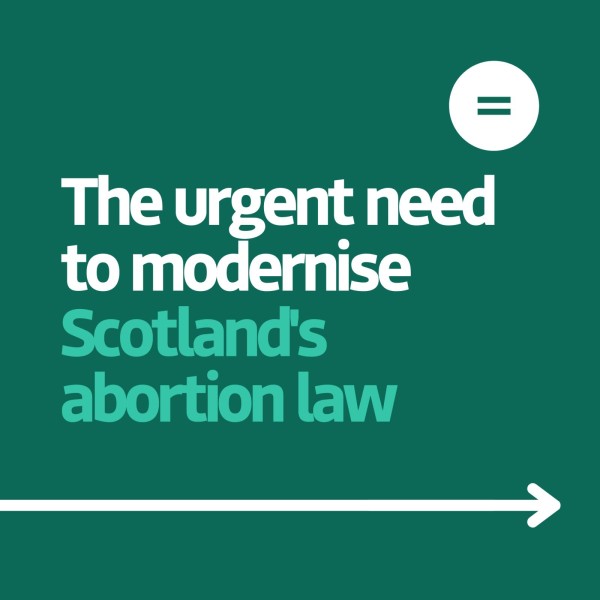Engender blog
All of Engender’s latest news. Reports, reviews, books, articles, and information from across Scotland’s women’s sector.
We would love to hear from other feminists around Scotland. Check out our guidelines for more information on how you can blog for us.
General Election 2024 – The urgent need to modernise abortion law.
We’re calling on candidates in the upcoming General Election to commit to taking action on four key areas for women if elected. In our What’s in it for women? four-part series, we’ll break down each of our key asks covering health, social security, equal representation and immigration.
Today, we’ll focus on health, and why we’re calling for the urgent modernisation of abortion law in Scotland.
Find and email your local candidates with our pre-written letter here.

General Election 2024?– What’s in it for women??
Email your local candidates with our pre-written letter here
In a few clicks, contact your local candidates to ask what they will do for women's rights in Scotland.
- Find your local candidates by searching your postcode below
- On the next page, edit and send the campaign letter
We’re calling on candidates to commit to taking action on four key areas for women if elected – and we need your help.
 Political decision-making affects women’s daily lives, yet there is a significant void in women’s representation and distribution of power in Scotland. We advocate for a Scotland where women are part of every political and economic decision, both as decision-makers and as citizens who are affected by the consequences of these decisions.
Political decision-making affects women’s daily lives, yet there is a significant void in women’s representation and distribution of power in Scotland. We advocate for a Scotland where women are part of every political and economic decision, both as decision-makers and as citizens who are affected by the consequences of these decisions.
A decade of austerity policies, the pandemic, and the ongoing cost of living crisis have all impacted women disproportionately. Issues like fuel costs, unpaid care, housing, women’s safety, mental health and social security continue to impact the most marginalised women.
The General Election on 4th July is an opportunity for the next UK Government to prioritise women’s rights and equality.
We need change to make women’s voices heard.
Building primary prevention of VAWG in Scottish policymaking - Invitation to Tender
Could you help us develop a programme of engagement and participatory research?

Violence against women and girls (VAWG) is endemic in Scotland and has devastating physical and psychological consequences for women and girls as well as their families and communities.
Almost every area of our lives is affected by public policy decisions, from our healthcare to the public transport we take. Women experience life differently to men and these differences are not always considered.
Engender’s Delivering Equally Safe funded project focuses on how different areas of public policy – including those outwith justice and equalities domains – can prevent violence against women and girls from occurring by tackling the root cause: women’s inequality.
Our work so far
At our Primary Prevention of VAWG in Policymaking conference in March, we brought together over 50 attendees from across 30 organisations for a dynamic blend of presentations, workshops, and discussions. Attendees included policy professionals and experts from a wide range of sectors, including many people new to gender mainstreaming and VAWG issues. On the day, participants addressed current barriers and shared best practises for inclusive, intersectional policymaking that works for women.
Many attendees expressed a desire for more cross-sector collaboration and knowledge-sharing opportunities around primary prevention in policymaking. In the next phase of our project, we are seeking to explore how we can develop these opportunities and make recommendations for the future development of this work.
Invitation to Tender
We are seeking a consultant to facilitate a programme of engagement and participatory research to build on and explore the ideas generated at our conference and to provide opportunities for a range of partners to collaborate and create opportunities for cross-sector and cross-policy working across Scotland.
We’re looking for someone with experience of:
- A feminist analysis of violence against women and girls
- A solid understanding of primary prevention of violence against women and girls
- Presentation, facilitation and group work skills
- Participatory research design and implementation
- Evidence gathering and analysis
- Presenting findings
You can access and complete the full Invitation to Tender document here. Please send completed proposals to Catriona Kirkpatrick at catriona.kirkpatrick@engender.org.uk with ‘Primary Prevention in Policymaking Network Development’ in the subject line in your email.
Deadline for receipt of tender proposals: 9am Thursday 27th June 2024
Modernising Scotland's abortion law
Today we launch our new report, ‘Outdated, harmful and never in the public interest - The urgent need to modernise Scotland's abortion law and prevent prosecutions.’
Here’s why...
 1. The law is in urgent need of modernisation.
1. The law is in urgent need of modernisation.
The legal framework which currently governs when an abortion is permitted is made up of a patchwork of laws that stem from as far back as the 17th century. These measures largely reflect the eras in which they were introduced, and the degrees of patriarchal control women were subject to at the time. Put another way, one of these laws was first introduced at a time when witch trials were still happening.
The law is therefore out of step with the experiences of women in modern Scotland for whom abortion is routine healthcare, accessed by around one in three in their lifetimes.
The report is informed by input from legal experts and medical professionals, detailing the wide-ranging support that exists for decriminalisation. It concludes with clear recommendations for Scottish Government and other key decisionmakers on what the next steps towards a modernised regulatory framework should be. These actions will be vital to support ongoing improvement in reproductive healthcare services and the safeguarding of reproductive rights for future generations of Scotland’s women and pregnant people.
 2. Prosecutions for crimes of abortion are happening in Scotland.
2. Prosecutions for crimes of abortion are happening in Scotland.
Under the current law women and pregnant people in Scotland have no legal right to end a pregnancy. That decision ultimately sits with doctors, two of whom must authorise the request for an abortion. This layers unnecessary complexity onto service delivery and creates delays and barriers for women. Without this permission and compliance with other rules set out in the Abortion Act 1967, abortion is illegal across Britain, and women, healthcare providers and people assisting someone to have an abortion can be subject to prosecution.
The sharp increase in prosecutions for abortion related offences in England throws into stark relief how the legal framework is increasingly working at odds with modern clinical realities, and public health, human rights and gender equality obligations.
Our report examines the shortcomings of the current legal framework in Scotland in detail, including evidence that women have been charged and prosecuted for abortion related offences in recent years.
 3. The current system in Scotland is not keeping step with international human rights standards.
3. The current system in Scotland is not keeping step with international human rights standards.
With a few high-profile exceptions, countries across the world are increasingly modernising and liberalising their legal frameworks on abortion. Laws in Scotland, England and Wales now trail behind more progressive regulatory frameworks in most other European countries. Britain, including Scotland, has also failed to keep pace with international human rights standards. These are clear that access to safe, legal and timely abortion is a fundamental human right that must not be regulated using criminal law and penalties.
 4. Abortion is treated differently under the law without medical justification.
4. Abortion is treated differently under the law without medical justification.
Despite being one of the most routinely used and safe forms of healthcare- accessed by one in three women in their lifetimes, abortion is treated differently in law than almost all other medical procedures. In all other fields of healthcare, medical bodies are able to shape guidance and regulation based on best practice, rather than complex laws, including criminal law, from a bygone era. Dealing with abortion in this way creates a harmful stigma around an essential health service. It also prevents the development of services that are based on the best available clinical standards. Like all other healthcare, the governance of abortion should rightfully sit with healthcare regulators and professional medical bodies, not criminal courts.
 5. Support for abortion rights is widespread
5. Support for abortion rights is widespread
Decriminalisation is supported by the World Health Organisation, all relevant medical bodies in the UK, UN treaty bodies, trades unions and equalities advocates. In January 2024, 93% of those polled in Scotland agree that women should have the right to an abortion.
In Summary
The current legal framework in Scotland is:
-
Outdated and falling behind international human rights standards
-
Out of step with guidelines from global and national health bodies
-
Impeding access to quality abortion care for women
-
Perpetuating abortion stigma, harmful gender stereotypes and women’s inequality
-
Preventing healthcare practitioners from providing the highest standards of care
-
Causing women trauma and lasting harm, that is most pronounced for marginalised women and those in situations of vulnerability
The report sets out how:
-
Women have been charged and prosecuted for crimes related to abortion in Scotland in the 21st century.
-
Abortion is vital, routine healthcare and is one of the safest and most frequently accessed medical procedures used by women and pregnant people across the world.
-
Decriminalisation of abortion is recommended by the World Health Organisation, major international human rights mechanisms, and all relevant professional medical bodies in the UK.
-
Decriminalisation is needed for realisation of a wide range of women’s human rights and for government compliance with international human rights law.
-
Safe and legal abortion is a cornerstone of progress towards women’s equality.
-
Decriminalisation is in line with high-level commitments from Scottish Government on gender equality and would help future-proof against regression on women’s rights.
-
Decriminalisation would remove unnecessary “chilling” pressures on healthcare professionals, who are exposed to potential criminal sanctions at work.
Read the full report here.
Why is sex and gender not included within hate crime legislation in Scotland?
.png)
There has been much discussion in media in recent weeks focussed on sex and gender not being included within hate crime legislation in Scotland. At first glance, it might seem appealing to expand hate crime aggravators to include sex, as an obvious way to increase protections for women. However, in reality, the hate crimes model was not designed to address the nature and scale of the gender-based violence and harassment women face in our society. The hate crimes model focusses on protect minorities. Women are not a minority- they make up 51% of Scotland’s population.

Women face a wide and complex range of gender-based violence and harassment in workplaces, public settings, online and at home. This violence and harassment are rooted in and drive forward gender inequality. Broader, more in-depth protections are therefore needed for women. Using hate crimes legislation to address misogynistic violence against women has proven to be inadequate in other countries that have trialled this approach. It has also shown potential to undermine more targeted efforts to address these issues.
-1713451648-0.png)
Ultimately, we need an entire legal framework and system that recognises the impact of sexism, misogyny and violence against women by design. A sex-based hate crime aggravator that is ‘added on’ to existing crimes won’t do this – we need a set of standalone, gendered laws. Without this, we risk creating unhelpful inconsistencies in how gendered crimes are dealt with by the justice system. It would, for example, leave it up to judges to determine whether an individual case of sexual assault or stalking meets the threshold for a sex-aggravated hate crime when in reality, these crimes against women are always inherently gendered forms of violence.
.png)
We worked with the Misogyny and Criminal Justice in Scotland Working Group led by Baroness Kennedy, to advocate for a thorough examination of how the justice system should respond to misogynistic violence and harm. We joined experts in law, social work and human rights to take the necessary time to grapple with the expansive question of how the law can be used to interrupt misogynistic attitudes and behaviours. The report can be found here. The Scottish Government subsequently launched the Misogyny Law Consultation, our response to which can be found here, published June 2023.
In 2022 the Scottish Government committed to introducing detailed legislation to improve protections for women before the end of this parliament.
Downloads
 Engender Briefing: Pension Credit Entitlement Changes
From 15 May 2019, new changes will be introduced which will require couples where one partner has reached state pension age and one has not (‘mixed age couples’) to claim universal credit (UC) instead of Pension Credit.
Engender Briefing: Pension Credit Entitlement Changes
From 15 May 2019, new changes will be introduced which will require couples where one partner has reached state pension age and one has not (‘mixed age couples’) to claim universal credit (UC) instead of Pension Credit.
 Engender Parliamentary Briefing: Condemnation of Misogyny, Racism, Harassment and Sexism
Engender welcomes this Scottish Parliament Debate on Condemnation of Misogyny, Racism, Harassment and Sexism and the opportunity to raise awareness of the ways in which women in Scotland’s inequality contributes to gender-based violence.
Engender Parliamentary Briefing: Condemnation of Misogyny, Racism, Harassment and Sexism
Engender welcomes this Scottish Parliament Debate on Condemnation of Misogyny, Racism, Harassment and Sexism and the opportunity to raise awareness of the ways in which women in Scotland’s inequality contributes to gender-based violence.
 Gender Matters in Social Security: Individual Payments of Universal Credit
A paper calling on the Scottish Government to automatically split payments of Universal Credit between couples, once this power is devolved to the Scottish Parliament.
Gender Matters in Social Security: Individual Payments of Universal Credit
A paper calling on the Scottish Government to automatically split payments of Universal Credit between couples, once this power is devolved to the Scottish Parliament.
 Gender Matters Manifesto: Twenty for 2016
This manifesto sets out measures that, with political will, can be taken over the next parliamentary term in pursuit of these goals.
Gender Matters Manifesto: Twenty for 2016
This manifesto sets out measures that, with political will, can be taken over the next parliamentary term in pursuit of these goals.
 Scottish NGO Briefing for UN Special Rapporteur on Violence Against Women
Joint briefing paper for the UN Rapporteur on Violence Against Women.
Scottish NGO Briefing for UN Special Rapporteur on Violence Against Women
Joint briefing paper for the UN Rapporteur on Violence Against Women.

Newsletter
Sign up to receive our newsletter here:
Sign up to our mailing list
Receive key feminist updates direct to your inbox:
